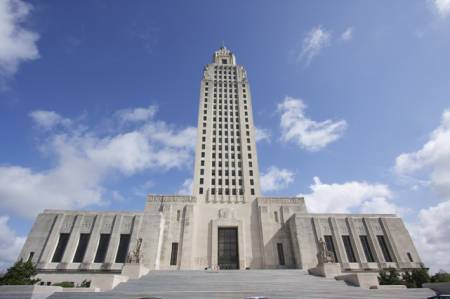
It’s great to hit the ground running, but sometimes things can go too fast. That could be the case with the just-called special session of the Legislature.
Governor Jeff Landry began his term as the state’s new chief executive with a bang. It was already understood that there would be a special session in mid-January responding to a court order to re-draw congressional districts. The federal courts have ruled that Louisiana’s congressional districts should better reflect the state’s population and to do so another potential minority district should be created for the U.S. House of Representatives.
But, in a surprise to many, the call for that special session, which begins January 15, is actually much broader. Among other things it includes drawing new districts for the state Supreme Court, reconsidering the number of justices and Supreme Court districts, the method of electing justices to the court, how the chief justice is selected, changes to campaign finance laws, and switching to a party primary system for elections within the state.
Those are some big issues for an eight-day legislative session.
The switch to a party primary system is the one that has gotten the most attention. States use a variety of approaches to hold elections, but there is no doubt Louisiana’s system is unique. It’s often referred to as a “jungle primary.” Everybody runs on the same ballot during the primary and the top two vote getters go on to compete in the general election, unless one of the candidates garners more than 50% of the vote – as Governor Landry did in October.
Three states have something similar to Louisiana, 15 have a form of closed primaries, and the rest have some kind of primary that is considered open. The key feature that makes Louisiana stand out compared to almost every other state is that party is not an issue. A voter can vote for any candidate they choose, regardless of party, and do so for every office on the ballot.
It’s a familiar process for voters because Louisiana has been doing it that way for almost 50 years. The only exception came in 2008 and 2010 when the state switched to closed party primaries for congressional seats only. In 2008 that meant that it took three elections instead of the normal two to select all of Louisiana’s members of Congress. The change was confusing to some and not particularly popular and the party primary system was quickly repealed by the Legislature with the approval of Governor Bobby Jindal.
It’s worth noting that Louisiana has about 822,000 registered voters who do not affiliate with either the Republican or Democratic Party. That’s about 28% of all voters. Under a closed primary system, such as the one Louisiana briefly experimented with, they would be unable to vote for any candidates until the general election.
Interestingly, while there has always been talk of party primaries in some political circles, citizens as a whole don’t seem to show much interest in a new voting process. A recent survey by Republican pollster John Couvillion found that “Louisiana’s open primary system is overwhelmingly popular, with minimal appetite for change.” According to his poll, 65% of voters favor the current approach.
Changing the state’s election system will be a hot topic, but some of the other items in the call are significant, too. The potential changes in state Supreme Court districts and the number of justices on the court is huge and would require amendments to the constitution. Changes in campaign finance laws could also be controversial, depending on what types of adjustments are being sought.
From CABL’s perspective, an eight-day special session to consider such weighty issues, many of which have received little debate or attention in recent years, is extremely short. It’s just a few days longer than what is considered the minimum normal time to pass a bill through both chambers. On top of that, these likely controversial matters will be decided by a Legislature that includes a significant number of new members who will be asked to make some extremely important decisions during their very first at-bat.
CABL welcomes the debate on all of these subjects. That’s what democracy is about, weighing and discussing important matters that pertain to our civic life. But an eight-day legislative session seems too short of a time to fully consider these issues and allow for the input of citizens who have a direct stake in all of them.
As we have seen before, the redrawing of congressional districts is contentious enough on its own. Adding major changes to the Supreme Court and the state’s entire election system is probably much more than we should be adding to the mix right now.
We hope first and foremost that the Legislature will work hard to come up with new districts for our members of Congress that will pass the scrutiny of the court and allow candidates plenty of time to campaign before the elections. We also hope lawmakers will begin to discuss the other issues in the call, but forego any final decisions until a later date.
It is wise to give our many new legislators time to gain some experience in the legislative process and learn more about these issues. Citizens should also have a reasonable period to consider the arguments they’re hearing on these major policy changes and weigh in with their own views.
There is a looming deadline for redrawing congressional districts, but not for any of the others. Allowing them to percolate in the arena of public discourse has no downside and will only make the Legislature’s ultimate decisions more informed by their knowledge of these issues and the views of the people who elected them.
